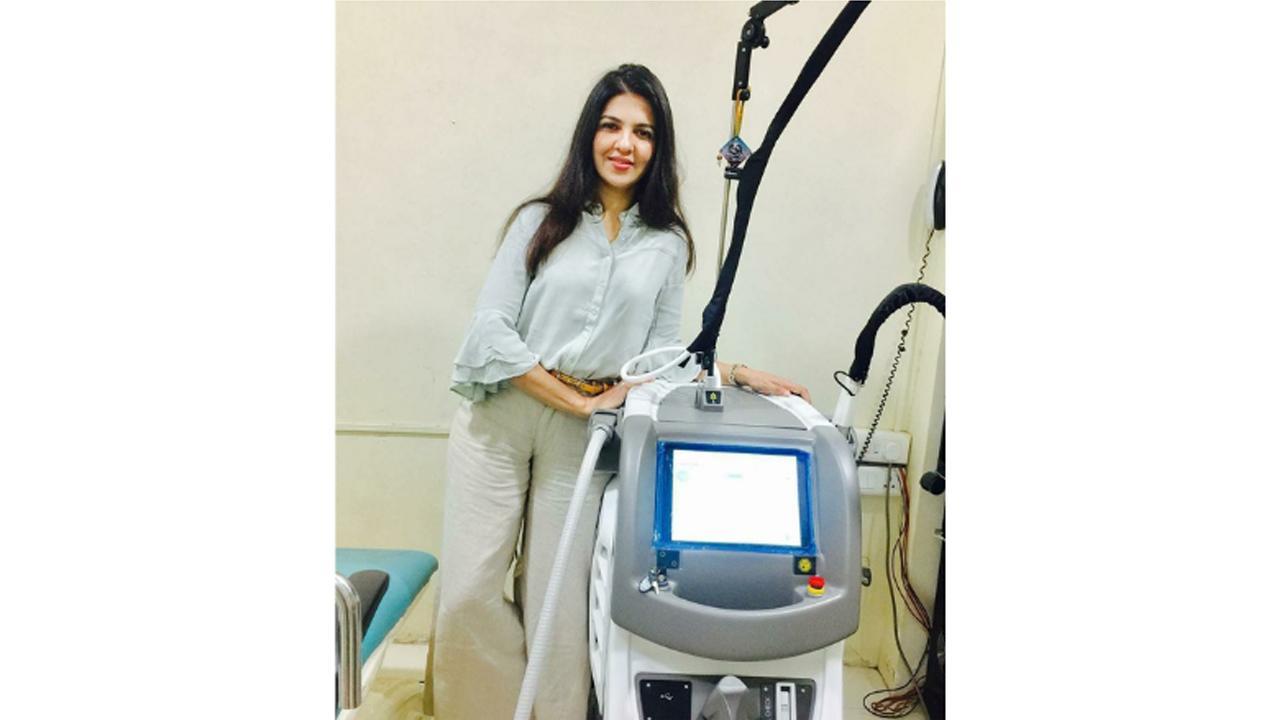
Dr Geeta Patel
As summers are approaching doctors hear more problems regarding acne and scars caused by it. Acne appears in different forms and sometimes leaves us with long scars on our body. To help you with the same, Dr Geeta J Patel has talked about the problem associated with acne and what causes scars. She is a leading consulting skin specialist, cosmetic dermatologist, and laser physician along with being the founder of Zah’ra Skin & Laser Clinic.
Sharing her views, Dr Geet J Patel has discussed the same answering the most asked questions.
ADVERTISEMENT
What is Acne ?
Nearly everyone suffers from acne outbreak at some point in life. Acne develops due to blockage and/or inflammation of pilosebaceous units (hair follicle, hair shaft and oil gland) in skin. This blockage usually involves oil or skin cells.
Where does acne most commonly occur?
Oil glands are all over your body, but they are more concentrated over places such as face, chest, shoulders and upper back and hence are the common sites for acne.
What causes Acne?
It’s important not to blame yourself for acne. Instead, what’s happening is complex. Many factors can contribute to acne and this includes genetics, oily skin, using products that may not suit your skin, medication, food and lifestyle, stress levels, sun exposure, and hormonal changes and hormonal related conditions such as PCOS.
What are the different types of acne?
It starts when secretions from the skin’s oil glands plug the tiny openings of hair follicles (plugged pores). Plugged pores can be open commonly called blackheads or closed called as whiteheads. Both types of plugged pores can develop into swollen, tender inflammatory papules, pustules, nodules and cysts.
Acne can be mild (a few occasional pimples) moderate (inflammatory papules) or severe (nodules and cysts).
Can acne cause scars?
Acne does sometimes result in scarring. It happens when the acne becomes inflamed and damages the deeper layers of skin. Scarring can, of course, be a source of anxiety, which is normal. Keep in mind that scar development has a lot to do with extent & duration of skin inflammation, so delaying acne treatment raises the risk of scarring.
What is the recommended treatment for acne?
The treatment regimen your doctor recommends depends on your age, the type and severity of your acne, and what you are willing to commit to.
For Basic self-care, it is recommended:
- Washing the face twice in a day with a gentle, pH balanced cleanser
- Washing the face after sweating (after exercise, removing masks, helmets etc.)
- Switching to gentle, non-comedogenic skincare products that do not contain alcohol or abrasive material that scrub the skin.
- Using clean towels and face cloths and washing items that touch the face often
- Avoid touching the face to pick or squeeze acne.
- After washing the face, a person may wish to try topical anti-acne treatments. Some ingredients to look for include:
Salicylic acid, reduces inflammation and unclogs pores
Topical Retinoids, which unclog pores and reduce oiliness.
Topical Benzoyl peroxide and clindamycin kills bacteria that cause acne.
- Alternatively, a dermatologist can make recommendations or prescribe medical strength versions.
Medication:
Only under dermatologist’s guidance, sometimes people require certain oral medications such as:
1) Antibiotics, such as azithromycin, tetracycline group etc. which can help with painful inflammatory acne
2) Spironolactone, which is a hormonal treatment that can block the effect of androgens on the skin
3) Oral retinoid, such as Accutane
4) Metformin and Myoinositol – especially in insulin resistance
4) Birth control pills etc.
There are several available treatment options for acne scars.
- Chemical peels
- Laser resurfacing (fractional CO2, erbium glass, Q-switched Nd- Yag, IPL etc.) – involves removing the damaged outer layer of skin, stimulating collagen formation resulting into firmer, healthier and younger looking skin
- Microneedling (MNRF) – provides deeper skin remodelling by delivering precise radiofrequency energy (heat) into the targeted skin tissue encouraging production of new collagen thereby improving the scars, tone and texture of skin
- Dermapen – a microneedling device used to penetrate topical nutrients deeper into the skin in response to which body’s natural healing response is triggered, thus giving a smoother, fresher looking skin.
- Subcision
- Fillers
- Surgery
Lifestyle changes
You may wonder what lifestyle changes you can add to your topical or oral drug regimen. Here are some to keep in mind:
- Protect yourself from the sun. Many acne medications will increase your sensitivity to the sun and make you more likely to get a sunburn.
- Don’t pick. Don’t pick at any acne lesions or touch them. Picking acne can result in scarring.
- Exercising is a great way to minimize stress.
- Avoid foods that may flare acne. There’s evidence to suggest that cow’s milk and foods that have a high glycemic index may cause acne to flare.
The bottom line
A good skincare routine, a healthy diet, and an appropriate & timely treatment regime by a board-certified dermatologist can keep your acne at bay.
 Subscribe today by clicking the link and stay updated with the latest news!" Click here!
Subscribe today by clicking the link and stay updated with the latest news!" Click here!







